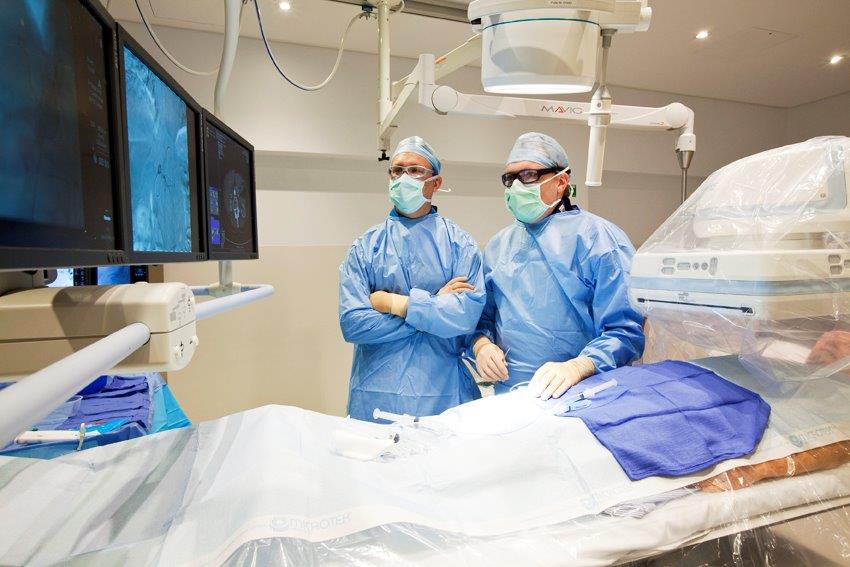Are you a new patient?
Use the Registration button to fill out your details before your appointment.
Are you a new patient?
Use the Registration button to fill out your details before your appointment.

Procedures
Read more about our procedures including how to prepare for your procedure, an explanation of your procedure, and download a procedure fact sheet.
Billing Information & Medicare Rebates
Billing Information
VIRQ has a number of options for patients to pay their account. For more information on account payments and fees, please Contact Us.
Medicare Rebates
Please contact VIRQ to learn whether your procedure is covered by Medicare or Private Health Insurance. There are some interventional radiology procedures that are not included in the Medicare Benefits Scheme, which means no rebate is available. For these procedures, VIRQ will issue an invoice and the patient is responsible for payment of this invoice. VIRQ will advise of costs associated with your procedure at the time of booking your appointment.
Frequently Asked Questions
Interventional radiologists are trained in image-guided, minimally invasive therapies, with most procedures performed through a pin-hole, rather than an incision. Most procedures involve directing a thin wire and a catheter, the size of a strand of spaghetti, through a blood vessel treat the source of pain or disease. Interventional radiology treatments often come with less risk, less pain, shorter recovery times than traditional open surgery, and often doesn’t require a hospital stay.
Radiologists are doctors who have received specialty training in diagnostic imaging; they interpret and report X-ray, CT, ultrasound and MRI scans. Interventional radiologists undergo the same training as a radiologist, but then undergo further sub-specialist training in minimally invasive, image-guided therapies, treating disease in most body systems.
Many procedures performed by interventional radiologists involve radiation from either X-rays or CT scans. Interventional radiologists undergo extensive training in radiation safety and understand how to mitigate the risks of radiation by following recommended radiation safety guidelines. IRs make it a priority to minimise the amount of radiation to the patient, themselves and other staff in the operating room.
While some procedures are best done with general anaesthetic, most can be performed with local anaesthetic and sedation. When having a procedure under sedation, patients are made comfortable and relaxed, without the physiological strain of a general anaesthetic. If you have any questions about this, you can discuss it with our case manager at the time of booking, or during your clinic appoint with your interventional radiologist.
Interventional radiologists at VIRQ practice modern, coordinated clinical care, in collaboration with your other doctors to ensure you receive the best quality care. We are able to manage your treatment through the course of your care - before, during and after your treatment.